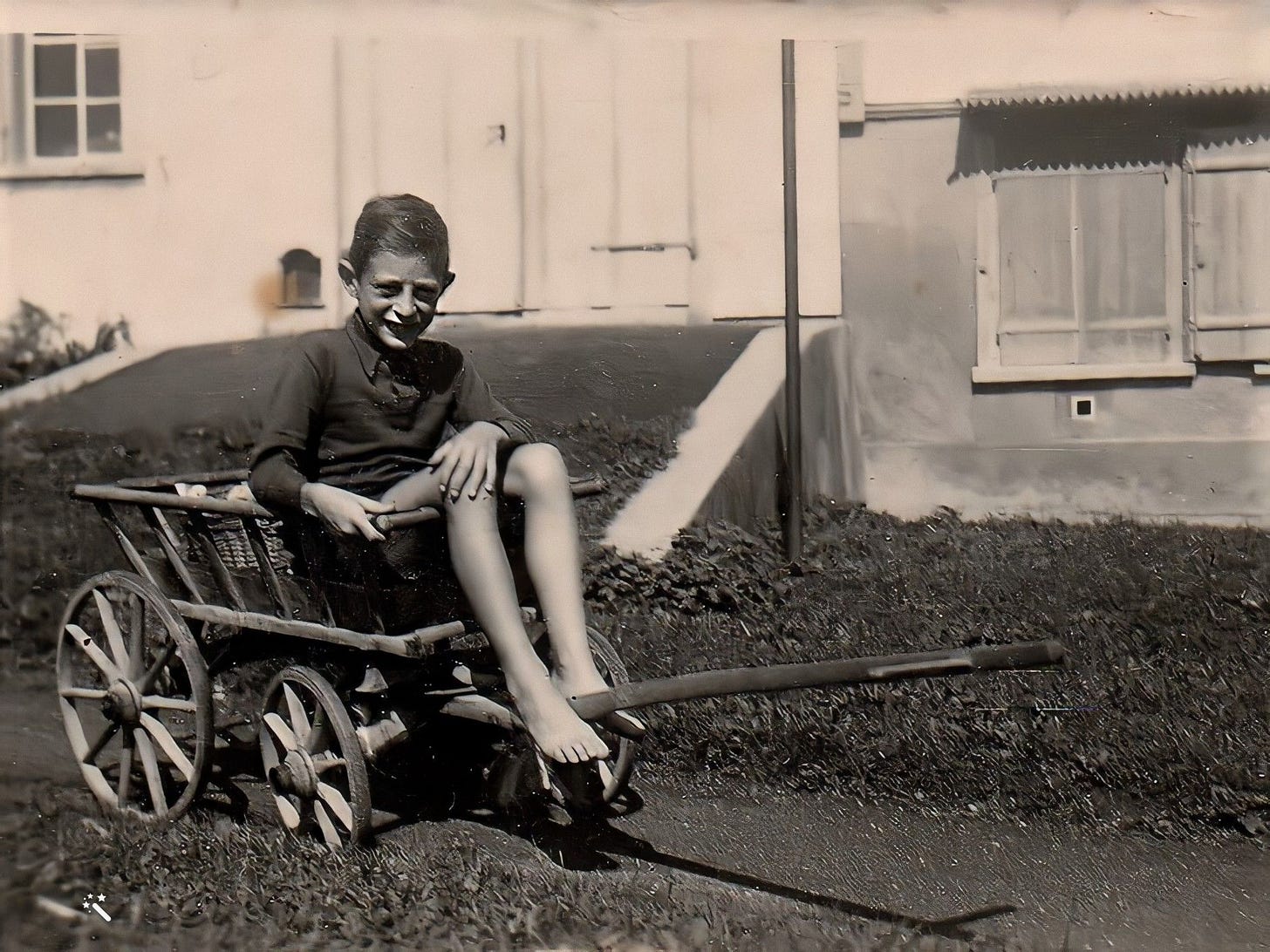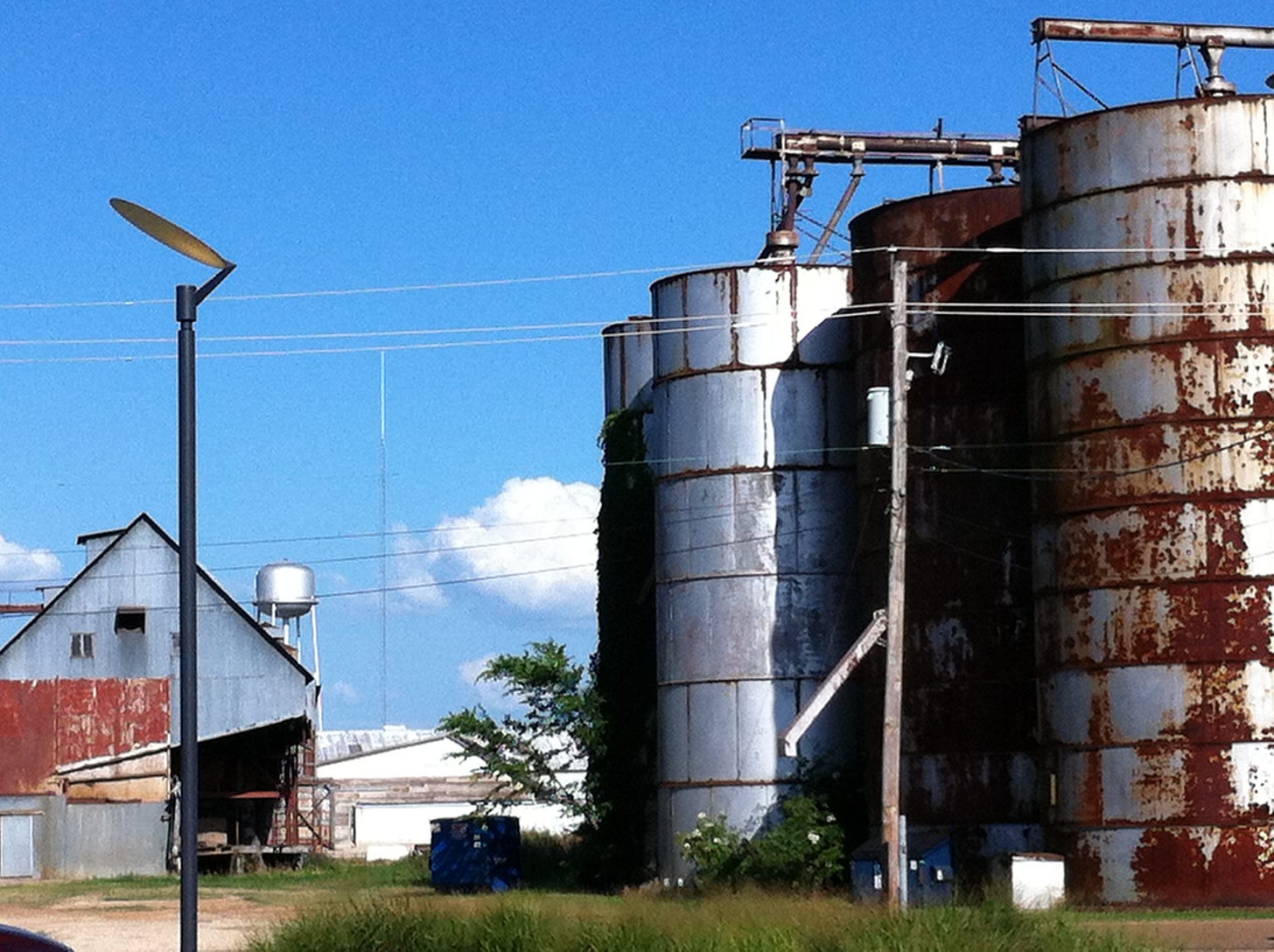We didn’t have much as kids. My parents weren’t great with money and while we had nice food and family time at Sinterklaas, it was often a bit of a sad time for me, when I saw other kids whose parents were financially better off than us get amazing gifts.
It wasn’t that I needed anything, it was just that I saw other kids who were really excited to show me what they got. It’s not easy to rationalize when you’re 9 and you get a rusty old bike for Christmas with a chain that keeps falling off, when your mate from school gets a brand new petrol-driven go-kart. Don’t judge the kid I once was.
Where we were lucky, was that every year my grandparents would send us a gift box from Holland. Back then we didn’t have Dutch shops in New Zealand. Cheese and beschuit aka biskottes were about the only Dutch foods you could get.
These boxes would be full of Dutch delicacies, Taai-taai, pepernoten, marzepan, salt licorice, dried kale, biscuits, and maybe little toys.
In my father’s usual way, things would be shared out equally, so everyone got something. This went back to his war experience when our family lost everything to the Nazis in WWII and everything was scarce.
Right up until the time I left home at the age of 16, the evening meal would always be rationed out so that everyone would get the same amount, especially on the nights when we had meat. It wasn’t until one day at the dinner table when I was 14 or so, I asked why they did that, why they had forced me to eat foods I detested, like liver and kidney, and why my mother’s fork used to almost fling food to her mouth, which snapped shut around it, and she would gulp it down in case it would disappear into vapour if she didn’t, that we worked out that this was like a PTSD, although the word wasn’t used back then. They had never even thought about or rationalised their Kantian behaviour, until I found a time when they were prepared to discuss it. My father would get quite defensive and aggressive when I asked questions like that. I still remember that night, when suddenly the dinner table went quiet.
As a baby boomer, I also succumbed to behaviours that stem back to the war. I was taught to chew the guts out of my food, to get every last bit of goodness out of it, and while ironically my mother was the fastest eater of the family, I became the slowest. I don’t recall the number, but my father told me I had to chew food a certain number of times before I swallowed.
This harkens back to the frigid days of the ‘Hunger Winter’ in WWII when my parents were surviving on 400 calories a day of food like beets and tulip bulbs that had fallen off trains onto the railway track, or food my grandmother had begged for from farmers, as she trekked around the country on a pushbike, riding on the rims, because the tyres were long gone.
By the end of the war, my father’s legs could barely carry his weight. But I digress again.
Driving around the States, I often saw deserted plants. You could tell that once upon a time, a town was built around a large business that employed most of the townfolk, with the rest of the business serving either the plant or the people who worked there and their families. When the plant closed down, it pretty much closed down any opportunity the people who lived there had to work, and of course, their homes also then became pretty much impossible to sell.
So my Christmas song was born.
This is an early version. It has since improved with age. The new version has a bridge that goes like this:
The same could happen to you or me If you see someone in misery Throw them a lifeline if you can. It don't have to be much Just a friendly voice and a loving touch could be All it takes to lend a helping hand
I’ve never been down on my luck to that extent, but driving around the back roads of small-town America, like Crystal Springs in Mississippi where I met the legend Robert Johnson’s granddaughter, Claudette, there were many examples of that. I am hoping that remote working opportunities as a consequence of the COVID pandemic will change that, because now many companies are happy for their staff to telecommute from just about anywhere that has high-speed Internet.
Another great example of a town that wouldn’t exist if it wasn’t for a guy who decided to discretely distill whisky in a spot where he found the Cave Spring Hollow, where 800 gallons of water bubbles up from miles under the surface every minute. May the people survive and prosper forever, in the town of Lynchburg, Tennessee, the home of the Jack Daniels distillery. I can still smell the awesome brew, having been allowed to lift the lid of a vat of whisky that was still fermenting.
Christmas is definitely a time to think of people other than yourself. I’m hearing some really nice stories of people paying it forward, quietly paying for groceries for the person who had to put something back on the shelf in the corner store, offering surplus food to people on community Facebook pages when they accidentally or deliberately cooked too much, or a tank of gas to the person behind them in the line at the gas station. Even in what might be considered by many to be affluent suburbs, there are plenty of people who are quick to take up an offer. Some might be embarrassed or offended, but that’s a small price to pay to find the people who do need help.
Sadly with inflation and the Reserve Bank of New Zealand warns that we are very likely to be going into a recession in 2023, there are going to be more people who need a Santa in their lives.
What’s your favourite Christmas song?






